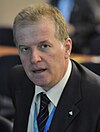Albanian parliamentary election, 2001
|
|
|||||||||||||||||||||||||||||||||||||||||||||||||||||||||||||||||||||||||||||||||||||
|---|---|---|---|---|---|---|---|---|---|---|---|---|---|---|---|---|---|---|---|---|---|---|---|---|---|---|---|---|---|---|---|---|---|---|---|---|---|---|---|---|---|---|---|---|---|---|---|---|---|---|---|---|---|---|---|---|---|---|---|---|---|---|---|---|---|---|---|---|---|---|---|---|---|---|---|---|---|---|---|---|---|---|---|---|---|
|
|||||||||||||||||||||||||||||||||||||||||||||||||||||||||||||||||||||||||||||||||||||
|
100 Constituencies and 40 Compensatory seats with National Proportional Representation 71 seats needed for a majority |
|||||||||||||||||||||||||||||||||||||||||||||||||||||||||||||||||||||||||||||||||||||
|
|||||||||||||||||||||||||||||||||||||||||||||||||||||||||||||||||||||||||||||||||||||
|
|||||||||||||||||||||||||||||||||||||||||||||||||||||||||||||||||||||||||||||||||||||
Parliamentary elections were held in Albania on 24 June 2001. The result was a victory for the ruling Socialist Party of Albania, which won 73 of the 140 seats, resulting in Ilir Meta remaining Prime Minister. Voter turnout was 53.6%.
The Assembly of Albania has 140 members of whom 100 are elected by plurality vote in single-member constituencies and 40 members are elected through a party-list proportional representation system.
President Rexhep Meidani announced on 18 April 2001 that the first round of the elections would be held on 24 June, with the second round on 8 July. The governing Socialist Party had the aim of gaining 60% of the vote, in order to have a sufficient majority to elect a new President in 2002. They campaigned on infrastructure improvements such as communication and transport and on their record in restoring order and economic growth. They were also boosted by achieving the opening of negotiations with the European Union on a Stabilisation and Association Agreement just before the election.
The main opposition party, the Democratic Party of Albania led by ex-President Sali Berisha, had moderated their message after losing the 2000 local elections. They formed a coalition of right wing parties, the Union for Victory Coalition, and said that they were open to dealing with other parties if they won the election. They hoped to make gains due to public concern over corruption and the continuing poverty in Albania.
...
Wikipedia






